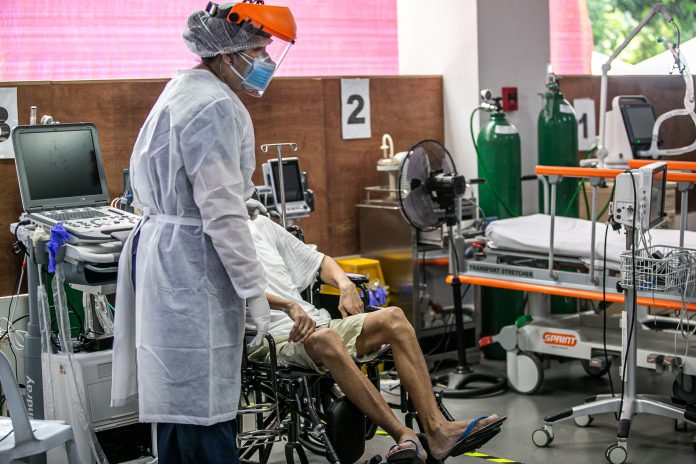You reap what you sow.
That may be the lesson we should really bear in mind especially since our over-all response to the COVID-19 pandemic leaves much to be desired.
Despite the best efforts of our public health system, hospitals and front-liners to cope with the onslaught of the coronavirus, the reality is that we have the highest infection rate as well as the highest death rate in Southeast Asia.
This shows that our public health system is now overburdened amid the continuing spread of the deadly infection.
When the government started its lockdown of the whole of Luzon in mid-March, the Department of Health lacked adequate testing kits, personal protective equipment, temporary quarantine facilities and had only a few hospitals dedicated to treating confirmed COVID-19 cases.
But thanks to donations from foreign governments as well as generous local corporations, civil society groups and ordinary citizens, the public health system is now in a better position to cope with the increase in the number of infections from the disease.
To help the government in addressing the coronavirus crisis, the Catholic Church has already mobilized its nationwide machinery to extend help to the poor and the marginalized.
Through the Catholic Bishops Conference of the Philippines’ Episcopal Commission on Health Care, the Church is actively collaborating with the private sector and NGOs to reach out to those adversely affected by quarantine measures.
In April, the Commission organized a mission to provide food packs and hygiene kits to more than 3,100 families in Cainta and Antipolo in Rizal province. It has also provided shelter to more than 300 street dwellers in schools and gymnasiums.
These are modest contributions to the over-all effort to surmount the public health crisis that we all confront today.
At the same time, we urge the government to give a higher budget to the Health department to reflect the top priority that health deserves.
In fact, our Health department was ill-prepared to adequately respond to COVID-19 since its 2020 budget for disease surveillance had been slashed by 50 percent.
In 2019, the DOH budget for its epidemiology and disease surveillance program stood at Pph263 million. This year, this was reduced to a measly Pph115.5 million, raising doubts about the country’s preparedness to deal with the coronavirus.
In January this year, at the House of Representatives, Gabriela party-list Representative Arlene Brosas pointed out that the 56 percent cut posed serious concerns over government’s capability to screen potential coronavirus carriers.
“We are worried that this hefty budget cut will constrain the health department’s capability to track and effectively repel the coronavirus outbreak,” she said.
In asking for a supplemental budget to increase the allocation for disease surveillance, she emphasized: “The health and lives of millions of Filipino people are at stake here.”
The lawmaker lamented that the budget for disease surveillance had been “dwarfed by the allocation” for privatized health care implemented by the Philippine Health Insurance Corp, which has Php71.35 billion to implement its programs this year.
At the start of the Duterte administration in 2016, the DOH budget allocation was Pph112.63. This decreased to Php95.25 billion in 2017 but increased to Php106.08 billion in 2018. In 2019, this further increased to Php165.92 billion in 2019 and went up to Php172.37 billion in 2020.
While the budget allocation for the DOH is bigger than that of several other departments, the DOH clearly needs a bigger budget in succeeding years as it must contend as well with the leading causes of death in the country: heart disease, diseases of the vascular system, pneumonia, cancer, tuberculosis, chronic obstructive pulmonary disease, and diabetes, among others.
In February last year, the national government moved closer to providing health for all with the signing of the Universal Health Care Act.
This is supposed to expand health coverage to include all citizens of the Philippines, and allows PhilHealth to provide members free medical consultation, laboratory tests, and other diagnostic requirements.
The Constitution mandates the government to “protect and promote the right to health of the people and instill health consciousness among them.” But if the Health department is not given sufficient funds to do its work, then we cannot hope to achieve our goal of health for all.
Ernesto M. Hilario writes on political and social justice issues for various publications in the Philippines. The views and opinions expressed in this article are those of the author and do not necessarily reflect the official editorial position of LiCAS.news.









